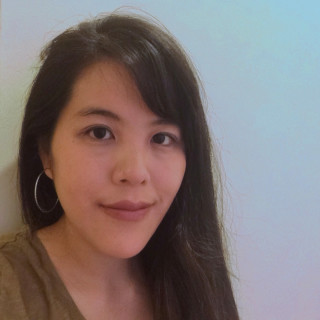
There’s a certain smile that stands out from the thousand other ones I’ve seen in Pediatrics. It’s unique from the eruption of four-year-old giggles when I palpate tummies trying to guess what was for breakfast and different from the adolescent grins of embarrassment when I ask Mom to please step outside for a few minutes during annual physicals. It’s dissimilar from the giggles I get from nine-month-old babies and unlike the smiles on the faces of school-aged children as they tell me a funny story from school that week.
No, this smile is of a more complex nature — appearing not on the faces of my patients but from the individuals who care for them at home: their parents, their legal guardians, their family members. It’s an amalgamation of multiple feelings, a smile that sometimes seems to whisper, I could just fall apart…but I won’t. And, I often see it when I least expect it: after I finish explaining a tough diagnosis; after I’ve relayed bad news, after I discuss the various steps we still need to take before we “can figure it out”. It leaves me wondering: How do these families still smile in the face of such stress and bad news? How can they still thank me after I’ve told them that we’re doing all we can and their child is still getting worse?
Yessica was a two month old ex-33 week infant with a diagnosis of only congenital heart disease who was discharged from the hospital with an ANC of 0 and instructed to follow up with multiple specialists: Hematology, Cardiology, Neurology, and Genetics. I met her and her mother when I was working as a primary care provider as part of the National Health Service Corps, a loan repayment program for clinicians working in underserved areas. Though I only met Yessica and her mother once, and though it was many years ago, I can still very clearly remember the visit. Carolina, my medical assistant, who I was constantly encouraging to go to nursing school, had taken Yessica’s vital signs and immediately notified me that there was a new baby here, that she was febrile, and that the baby looked “really sick”. She relayed to me that the mother had just walked 30 minutes in the hot sun because, “Mi bebe no quiere comer.” Baby wouldn’t eat. Yessica’s mother soon explained to me that she had actually taken Yessica to the Neurology and Genetics appointments that morning and that Yessica had a temperature of 100.2 degrees at those appointments. But since the doctor didn’t say anything, she thought it was normal. I can still see Yessica’s mother’s tears when I softly but firmly told her that I was going to send Yessica to the hospital — by ambulance. Her mother kept repeating that she knew something was wrong with her baby and she was so grateful to me for believing her and “seeing my baby like I do”. I can still feel her heaves in my arms as the paramedics strapped tiny Yessica to the gurney. And, I can still see Yessica’s mother smile at me before she climbed onto the EMS with her daughter, saying one last time, Gracias, gracias, bye.
It’s smiles like these – like that of Yessica’s mother’s – that latch onto me, tug at my heart and mind, remain stubbornly in my memory. At times, it makes me contemplate the irony of my unintentionally causing sadness to a family when I actually entered this field of nursing and medicine because I wanted to alleviate suffering.
I became a pediatric nurse practitioner after receiving a B.A. in English literature at a small liberal arts college. As an English major, I was particularly interested in and focused on themes of suffering and the ethics of decision-making in post-1830 fiction. It wasn’t until I studied abroad in Beijing that I was struck by my complete inability to tangibly relieve suffering – even if I could write impressively and extensively on it.
I sometimes think of my work in Pediatrics as trying to uncover smiles in moments of chaos. Bringing a smile out of a febrile 4-year-old. Eliciting a grin out of a 17-year-old with a UTI. Smiling at a six month old and watching them smile back at me. But, it’s also about relating to parents and guardians who bring their kids to see me. Giving reassurance. Addressing unspoken questions. Allaying parental fears (when I can). It’s about caring for the entire family, showing parents through words of empathy and integrity that I care deeply about their child. It’s about helping the family get to a point where they are able to finally exhale … and smile out of the knowledge and assurance that someone cares, and that they are not alone.
Evelyn Lai is a pediatric nurse practitioner as well as a 2018–2019 Doximity Author.







